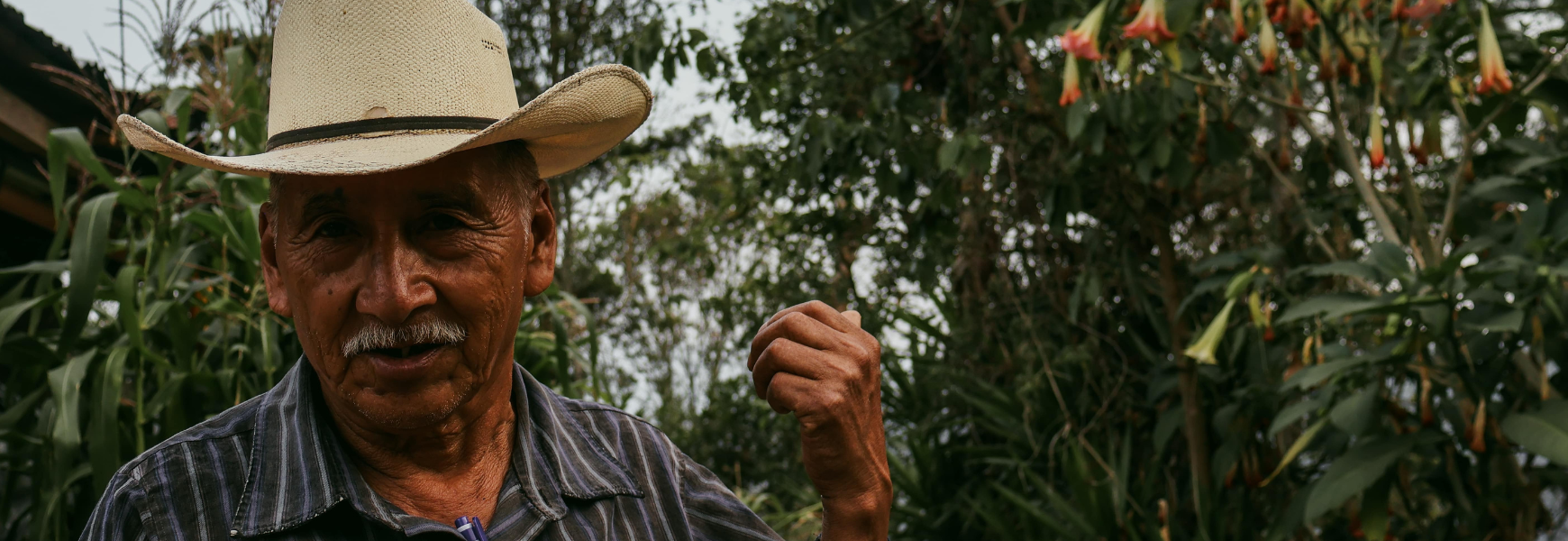Ajil Tz’aqat: A Mayan Way of Life for a World in Crisis
"To embrace Ajil Tz'aqat is not to appropriate Mayan traditions, but to recognize their relevance and honor the knowledge that has long offered alternatives to the systems now collapsing around us."
“You are me, and I am you; we are us, and what happens to you happens to me.”
What would our world look like if this sentence guided our laws, economies, and daily lives?
This relational principle is the foundation of Ajil Tz’aqat: a way of life anchored in care, balance, harmony, and reciprocity, shaped by the Mayan cosmovision. It guides the daily life and values of the Maya people in Guatemala, but also the work of local organizations like AGRIDIVI (Asociación de Agricultores Las Ilusiones del Divisadero). Based in the Western highlands, AGRIDIVI works with Maya, Kiche and Xinca communities to help them face deepening food insecurity and climate disruption in Guatemala’s Dry Corridor through agroecology, native seed reserves and collective action.
Guatemala is home to more than 20 Indigenous groups, each with its own set of ancestral practices and beliefs. Ajil Tz’aqat has been embedded in the Mayan way of life since ancestral times. When AGRIDIVI encountered this worldview in 2018, they saw it not only as a cultural heritage worth honoring but also as a dynamic framework for collective well-being. Since then, AGRIDIVI has integrated Ajil Tz’aqat into its work and has helped share its principles with other communities across the region.
Far from being limited to one people or place, Ajil Tz’aqat offers guidance for reshaping how any society might organize itself, make decisions, and care for the Earth and one another, especially as we face compounding ecological and social crises.
What is Ajil Tz’aqat?
“The one who watches over, cares for, and completes me.”
Ajil Tz’aqat comes from three Kiche words: aj (the one who), il (sees, watches over), and tz’aqat (complement). Together, it means: “the one who watches over me, cares for me, and completes me.” But it isn’t limited to humans. For the Maya people, every being in this world (humans, rivers, animals, ancestors, the wind) watches and is watched, cares and is cared for, completes and is completed.
In the Mayan cosmovision, human beings are just one element in the full expression of life. They are part of a larger web that includes the Earth, animals, plants, water, air, and the cosmos. Rooted in this cosmovision, Ajil Tz’aqat seeks to recognize, address, and heal the lack of interconnectivity in gender, ecological, environmental, symbolic, psychological, and spiritual relationships.
At its heart are the principles of harmony and balance, grounded in values like complementarity, equity, respect, openness, listening, and collective responsibility. For the Kiche and Maya people, healing the broken relationships between all elements that make up the web of life is essential for creating el buen vivir—a life of wholeness and balance.
Central to the Kiche and other Maya peoples is their cosmovision, understood as “the harmonic relationship between all the elements of the universe, in which the human being is only one more element, the Earth is the mother that gives life, and the corn is sacred.”
Strengthening Leadership through Mayan Cosmovision. PNUD Guatemala, June 1st 2018
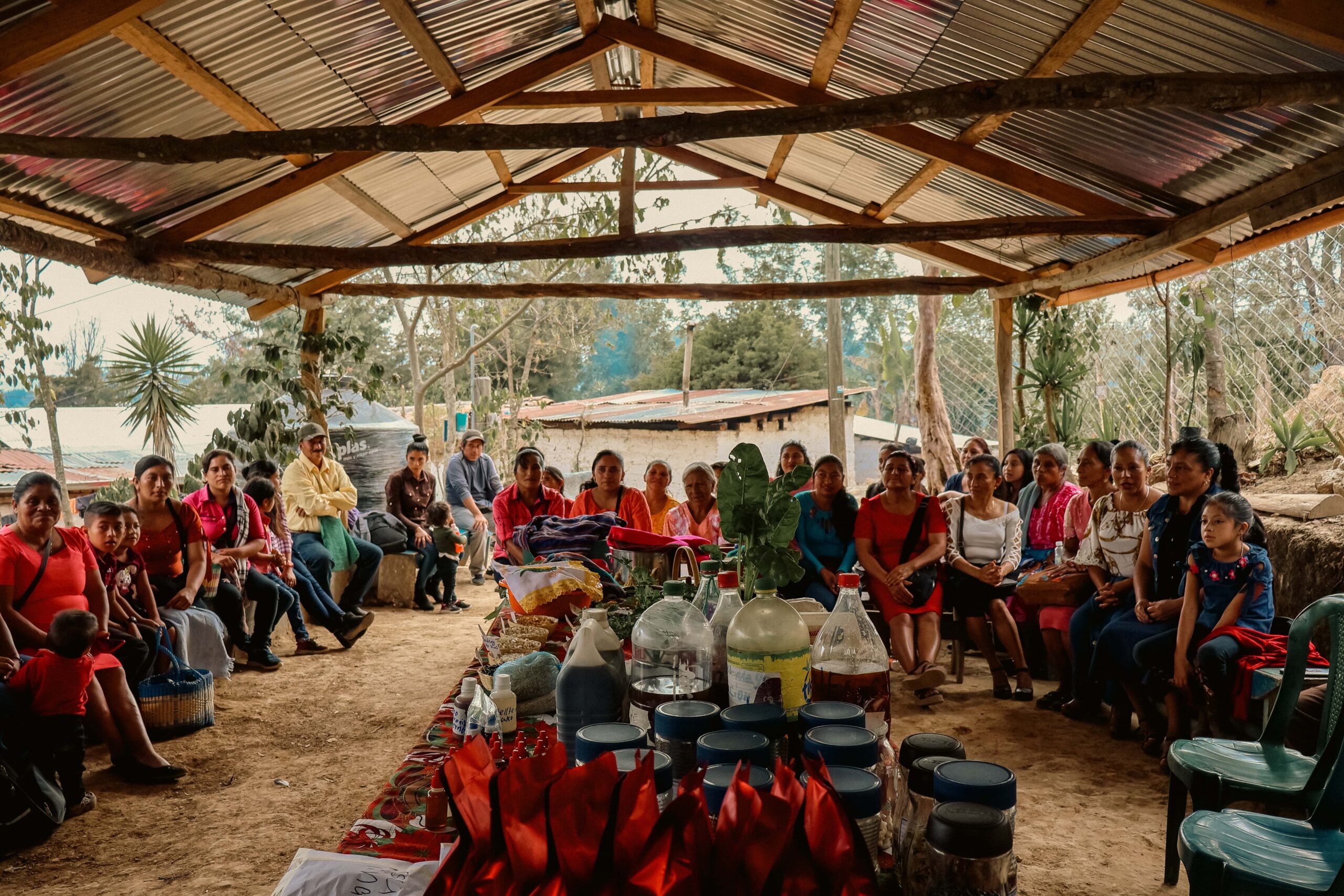
Two key pillars of the Ajil Tz’aqat Mayan way of life
The key pillars of Ajil Tz’aqat are:
1. Duality, Complementarity, and Equity
These three elements shape how Maya Kiche communities design projects, lead, and make decisions together.
Duality is about life’s constant flow and balance. Sunset melts into dusk, seed into fruit, inhale into exhale. Each pole exists because the other is present. Duality is about recognizing that night and day, woman and man, cold and heat are not opposites but partners in movement.
Complementarity is about cultivating relationships based on reciprocity; honoring the full strength and value of each person and element of life so that they can enrich one another. It’s the foundation of the Mayas’ milpa intercropping farming system, where each crop complements the other.
Equity is about fairness and dignity, recognizing that different people, roles, and beings bring different contributions and that all are needed to sustain balance. In terms of gender, the Maya and other Indigenous communities consider gender equity as inseparable from community well-being. It’s understood through distinct roles that work together to maintain the harmony of the whole, each holding equal value.
As Ana Laínez, spiritual guide of the Ixil people, shares in an article for The Huffington Post:
“As Indigenous people, we don’t accept individuality as the basis for our culture. The goal of gender equity is not to create two separate, independent individuals who compete for their personal rights and freedoms. Rather, we recognize the differences and duality between night and day, rain and sun, and man and woman. We (man and woman) aren’t the same, but we need to be treated with equality and mutual respect in our differences so as to reciprocally complement one another in our strengths and our weaknesses.”
2. Collective Consciousness and Care
Ajil Tz’aqat in practice means recognizing each being’s role on this collective path, starting from what Ajil means: the connection between oneself and others. Care here is about taking responsibility for the well-being of the whole, which includes relationships, community, identity, leadership, and the environment.
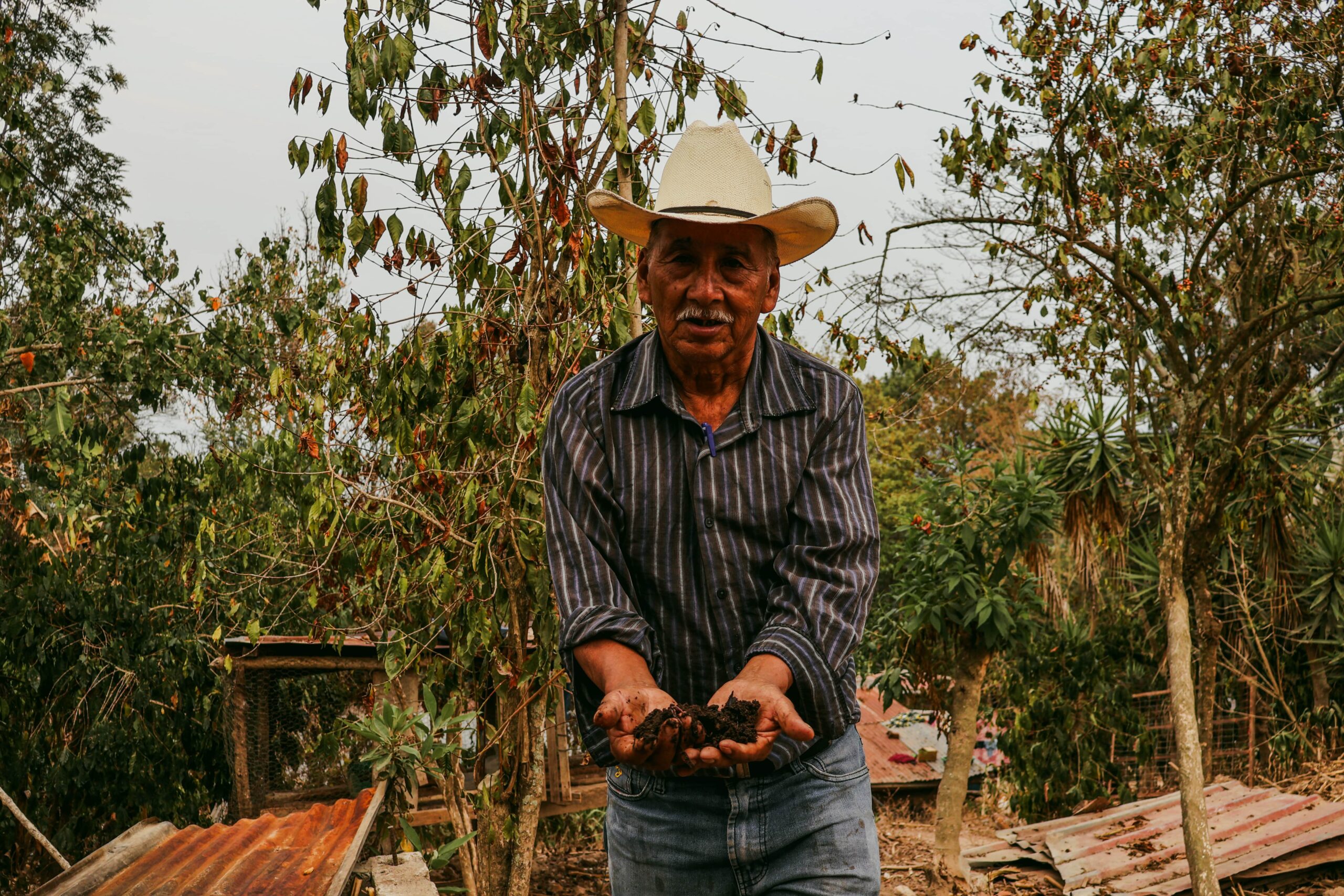
Weaving Ajil Tz’aqat into daily organizational work
Rather than treating Ajil Tz’aqat as a distant spiritual ideal, AGRIDIVI uses it as a guiding compass for how they plan projects, relate to communities, and even make internal decisions. Their goal is to ensure these principles live within every program, partnership, and person involved.
1. Beginning from the local heartbeat
AGRIDIVI starts from what they call the situational axis: the local context. Every community holds its own rhythm, beliefs, and relationships with the land and cosmos. To act “from” people rather than “upon” them means listening first, and understanding how each place already practices balance and where it has been disrupted. AGRIDIVI learns from how people think, feel, and interact before proposing solutions.
2. Guiding principles for collective action
In its organizational planning, AGRIDIVI uses Ajil Tz’aqat’s Duality, Complementarity and Equity as their three guiding forces. They shape everything from community agroecology projects to youth leadership training. Between 2021 and 2024, AGRIDIVI has been working on a series of initiatives that bring these principles into practice. These include:
- Agroecology for the present and future, promoting ecological farming that respects natural cycles and community wellbeing.
- Rebuilding harmony between the cosmos and nature (“Utz K’aslemal”), supporting cultural and spiritual renewal as part of environmental restoration.
- Strengthening political advocacy, connecting social organizations, ancestral Indigenous authorities, and communities to defend biodiversity and the right to food
- Defense of natural goods and collective rights, led by Maya communities, to ensure the Buen Vivir (a life of balance and dignity).
- Food and nutritional sovereignty, promoting agroecological production that guarantees nourishment and self-determination for rural families.
- Defense of Indigenous rights, especially among the Kiche people, to protect cultural, territorial, and personal rights in alignment with the Buen Vivir.
- Training Indigenous youth leaders, empowering them to engage politically and socially while staying grounded in Mayan spirituality and identity, creating bridges between generations.
- Empowering women to promote the Buen Vivir, advancing gender equity from within territories and communities.
- Building alliances for collective advocacy, linking spiritual guides (Komon Ajq’ijab’) and community leaders in shared struggles for dignity and justice.
Through agroecology, communities cultivate food sovereignty and protect biodiversity, grounding livelihoods in reciprocity rather than extraction. They restore relationships between women and men, land and water, organization and cosmos. The measure of success is not only in yields or income, but in harmony, balance, and the flourishing of all life.
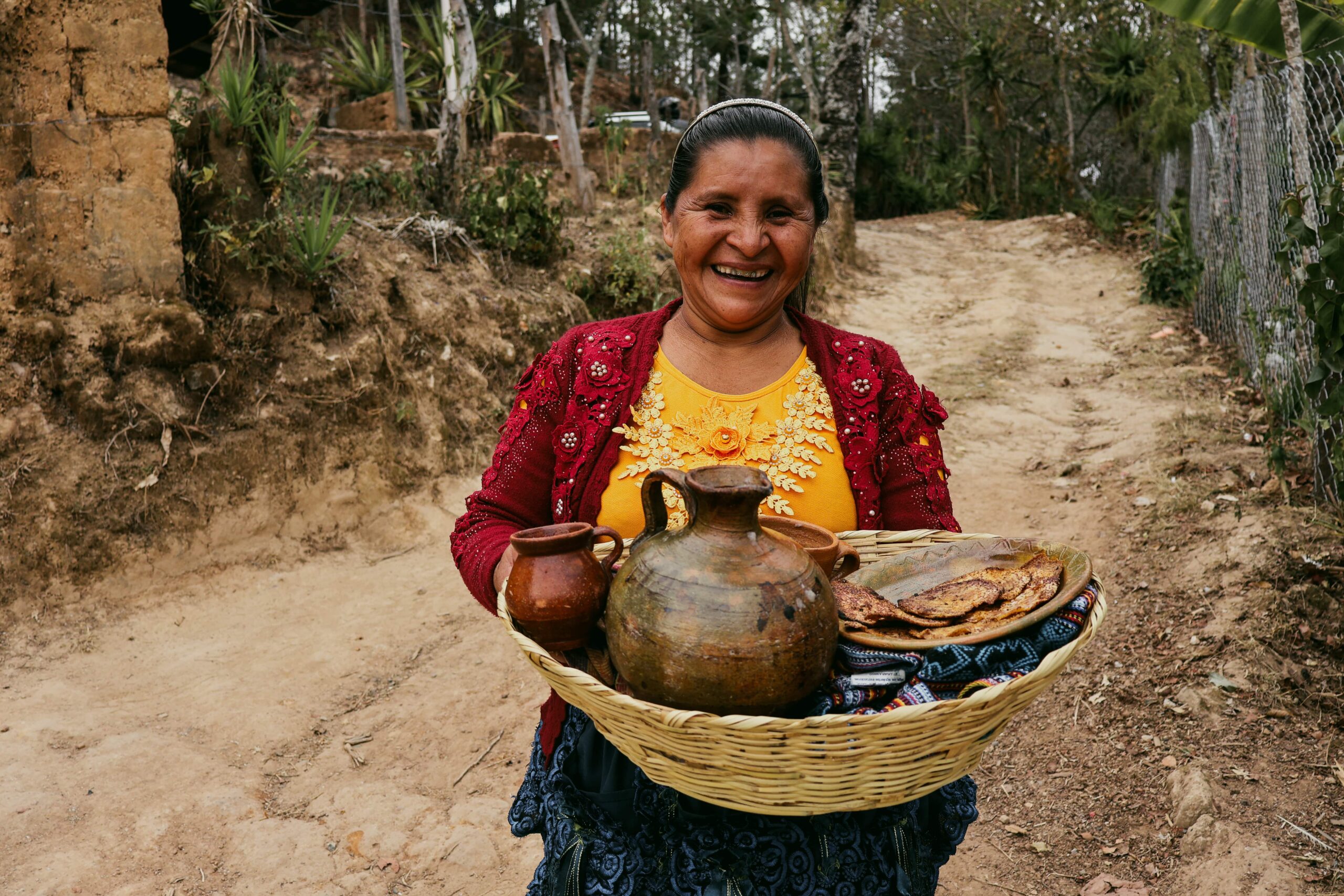
Adopting an Ajil Tz’aqat mindset
Ajil Tz’aqat offers a different lens from the dominant Western worldview, which often places human beings—predominantly white, Western men—above and separate from nature. That perspective has shaped systems built on inequality, injustice, exploitation, and disconnection, from the endless pursuit of wealth to the destruction of the planet, the marginalization of women, and the dismissal of Indigenous peoples.
Ajil Tz’aqat calls for a shift: from ownership to stewardship, domination to reciprocity, extraction to regeneration. It offers another narrative, one tested over millennia: We thrive together in balance, or we do not thrive at all. It asks us to rethink how we grow food, make decisions, relate to the land, and define gender, wealth, and power. In practice, it means:
- Seeing the Earth as kin, not property.
- Recognizing ecosystems as legal beings, with the rights of nature and future generations written in constitutional law.
- Valuing Indigenous knowledge and elders’ wisdom and memory as equally essential to innovation as scientific research.
- Redefining leadership as a role of service to the collective, not an assertion of power over others.
Thinking, feeling, and acting from the perspective of Ajil Tz’aqat challenges us to rethink how we relate to one another, the Earth, and the universe. It invites us to build a future where all forms of life can thrive in balance. To embrace Ajil Tz’aqat is not to appropriate Mayan traditions, but to recognize their relevance and honor the knowledge that has long offered alternatives to the systems now collapsing around us.
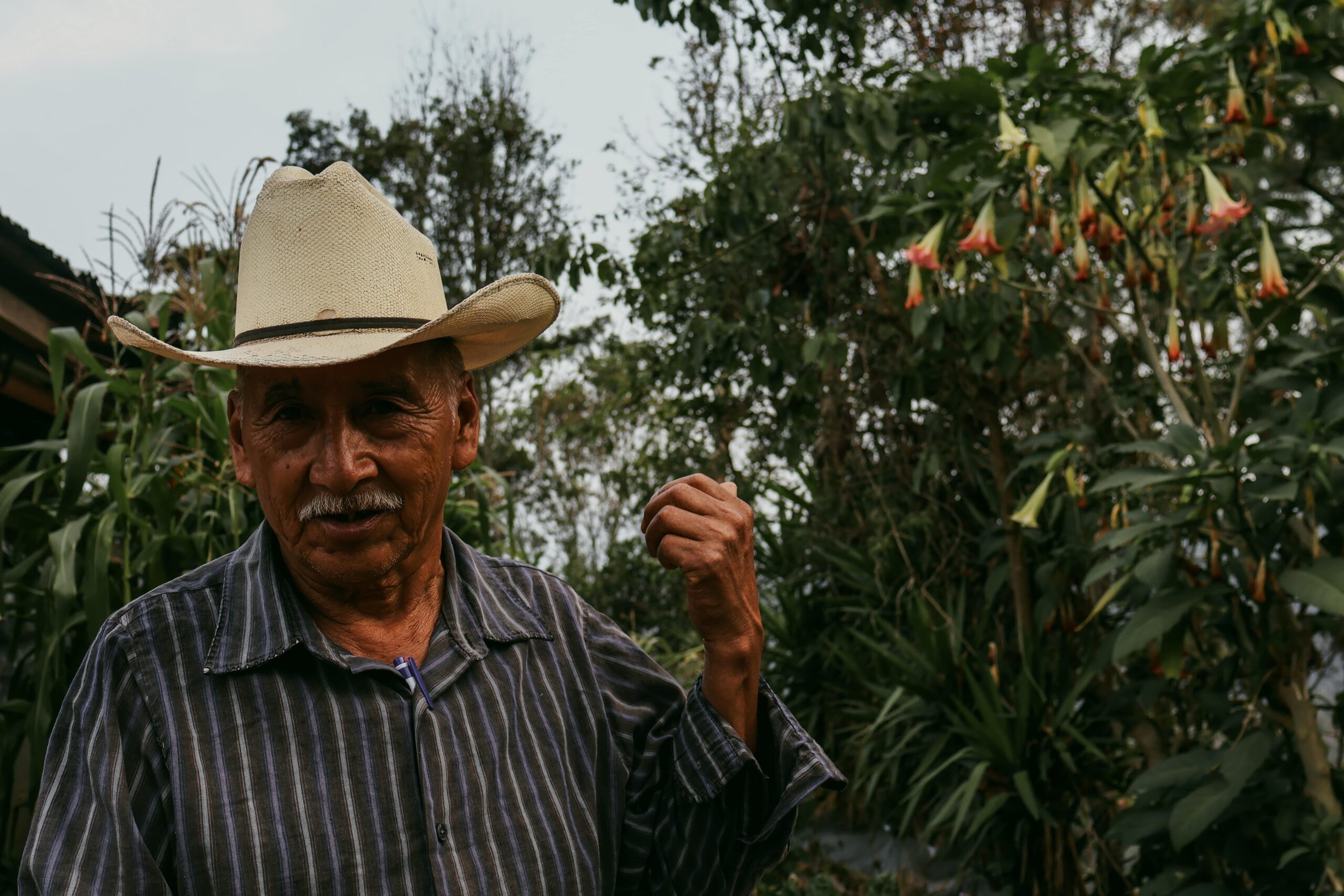
Ajil Tz’aqat in practice: a comparative guide
| Ajil Tz’aqat (Mayan Cosmovision) | Western Worldview (Eurocentric/Capitalist) |
| Relational and interconnected. All beings—human and non-human—are part of a living web. “What happens to you, happens to me; what happens to the Earth, happens to us.” | Individualistic and hierarchical. The human (often male, white, Western) is seen as superior and separate from nature. Progress is measured by domination and control. |
| Knowledge is situated, spiritual, and collective. Wisdom comes from lived experience, ancestral memory, ritual, and the natural world. | Knowledge is rational, objective, and fragmented. Science is often separated from emotion, spirituality, and ethics. Only certain forms of knowledge are considered valid. |
| Healing is holistic. It involves restoring relationships between genders, with the Earth, and among all beings. | Healing is compartmentalized. Mind, body, environment, and society are often treated separately. Social and ecological disconnection is normalized. |
| Economy is based on reciprocity and care. Well-being is collective, and wealth is relational: measured in health, harmony, and balance. | Economy is extractive and profit-driven. Wealth is individual and material. Growth is pursued even at the cost of people and ecosystems. |
| Community and the Earth are central. The first territory to defend is the body, then the land, and then all life. | The self is central. Autonomy and private property are prioritized over collective or ecological rights. |
| Spirituality is embedded in daily life. It guides action, ethics, and purpose. | Spirituality is often separated from public life. Secularism dominates education, politics, and science. |
Sources:
Documentation provided by Groundswell International’s local partner in Guatemala, AGRIDIVI.

